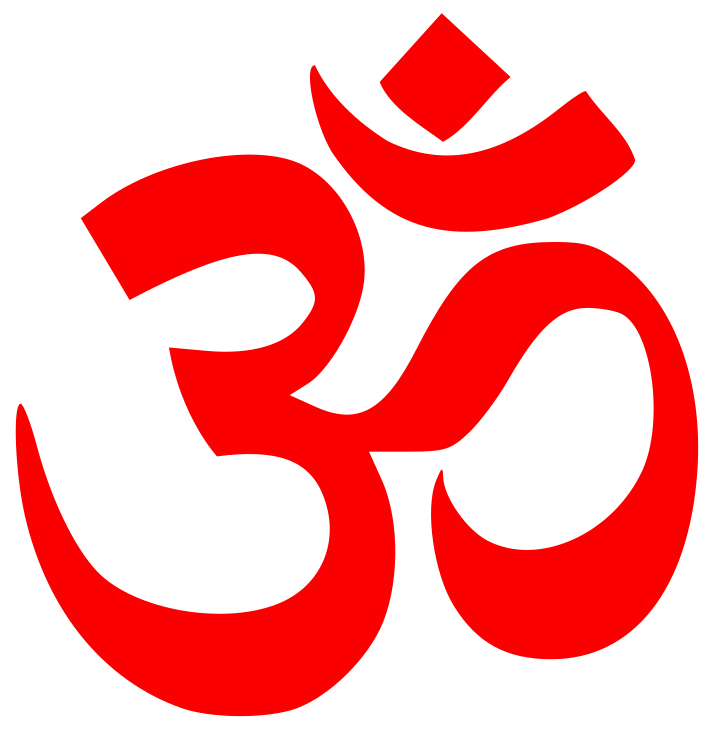All Good Everywhere from the One God
Sanātana Dharma (Eternal Truth/Path/Way) aka Hinduism holds that all good everywhere is from the ONE Spiritual-Supreme/God and that all names including Bhagavān that Hindus use for God connote God in ultimate reference and further that anyone anywhere can approach God in the best non-exclusive/free way known to them (be it an Image/Deity form, nature, etc.) and God will reciprocate. Hindus further hold that all living entities are equal as spirit souls (sarvatra-sama-darśana) and belong to God and thus constitute one world/universal family in accordance with the Vedic maxim Vasudhaiva Kutumbakam.
Veda
Veda (meaning The Word), which is eternal and thus has always been in existence (and the earliest known to Man), treats of both the constitution of things in the universe and the conduct, the constitution of things requires of us[2]. Its universality is best captured in the below.
PRÉCIS OF UNIVERSAL SPIRITUALITY
by
Yogi Pārthasārathy Aiyangār (1900)
The Catholics shut heaven against all
Who follow not the Pope.
Most Protestants say – “None who isn’t
Of Christ, for heaven need hope”.
Some others send to hell, all who
their Prophet do not own.
“The man of God” opens heaven[4] to all
Who do not God disown.[3]
His doctrine is :- “In God we live
And move and have our being.
Grown ripe by God’s free grace, gains heaven[4],
In time each living thing, –
To lead, in blessedness which hath no bounds,
A God-communing life that never ends.
The name – Nārāyaṇ’s[1] hence to God is given,
By saints Inspired, who foretaste have[2] of heaven,
Seeing the Divinity that ever shapes our (a) course and (b) our aim,
However much we free will feel in us and credit claim.
As life is short and art is long,
Let’s choose the best all truths among“.
[1]Nārāyaṇa = the Eternal Lord of Bliss, —in Whom all the nārāḥ or eternal hosts of psychical and material entities ever live, move and have their being, and who, consequently, is designated their Ayana or Sustainer, Mover and Final Goal (according to the threefold etymology of the word Ayana). [2] have=bliss. [3] i.e., “Who do not disown God.”. [4] heaven = the spiritual universe called Vaikuntha (The Perfect, The Land of unhampered Freedom and Joy), not svarga (the material heaven).
Hinduphobia
This site aims to also address Hinduphobia, be it in regard to Caste or Polytheism or Idolatry or anything else that might trouble anyone, by providing requisite information and encouraging open/public discussion of these, rather than hiding behind the Hinduphobia label at the first mention of any element of Hinduism and suppressing thought. In other words, when Hindus notice Hinduphobia, they are able and willing to discuss the sources of the phobia with the requisite information/knowledge and free discussion rather than forceful suppression of any discussion/thought.
General Inquiry
Who am I? Where did I come from? Where am I going? Learn from Vedanta, the ends of Veda (Eternal Universal Knowledge to be known).
Learn about Soul, Matter and God from Tattva Traya or Aphorisms on The Three Verities.
Learn about Freewill, Law of Karma, Karma Yoga (Path of works), Jñāna Yoga (Path of Knowledge), Bhakti Yoga (Path of Devotion), Resignation/Surrender from Bhagavad Gīta (Chants of Spiritual-Supreme/God) from over 5000 years ago. Bhagavad Gīta contains the essence of Vedānta.
Reference Materials
- The Vade Mecum of Vedanta or a Compendium of Vedic Philosophy (1909) by Sri Alkondavilli Govindacharya
- Tattva Traya or Aphorisms on The Three Verities, Soul, Matter and God, translated in 1900 by Yogi Parthasarathy Aiyangar.
- Tattva Traya, Contemporary English translation (1970) by Gwalior Satyamurthi Ayyangar. This translation supplements the above one (by Yogi Parthasarathy Iyengar) for contemporary study for easier understanding.
- The Tattva Traya of Lokāchārya by B.M. Awasthi and C.K. Datta.
- Vedartha Sangraha, a summary of Upanishads (Vedānta) by Sri Ramanujacharya; English translation with an introduction to Advaita and Visishta-Advaita by Sri M.R. Rajagopala Ayyangar.
- Sri Bhagavad-gītā (1898) by Sri Alkondavilli Govindacharya. Available in web-format at githa.koyil.org
Further Information
This page is recommended for more information.
Local Chapters/Meetings
For local chapters/meetings/sessions in your area, please contact using the contact page.

